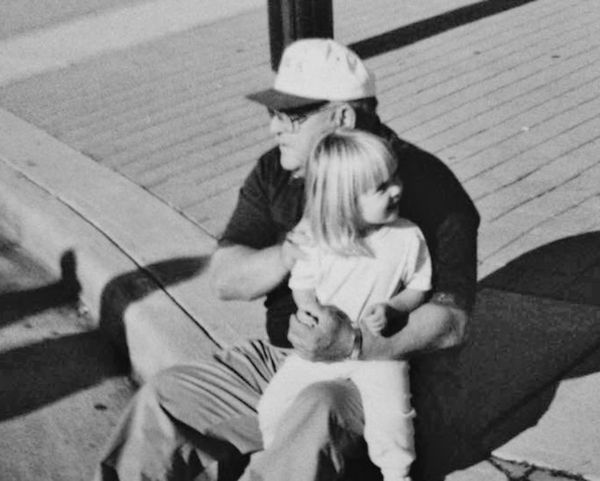My summer so far has been a lonely, reflective one. I began with an exciting half-month journey in Cameroon. It was hot, beautiful, busy, and fascinating. Contrasted with that experience is what I’ve been doing since then: caring for my grandparents’ old house in New Jersey. Grandma and Grandpa (Ethel May and Robert Thomas Healy) both lived in the same house for over 50 years, in the same county their parents had raised them.
Grandma died in September 2015, and Grandpa had to be moved out with us to Michigan, so the house sat vacant for a few months, as my parents were unable to get the time to come down and do the things necessary to sell the place. I offered to go myself and spend the summer there. I figured, my alternative would be working minimum wage at a grocery store. I got an internship in Philadelphia, and flew out to New Jersey 24 hours after landing back from Africa. After all that excitement, the quiet, dark, house surrounded by trees, hundreds of miles from any friends or relations was a restful change of pace.
What has been especially interesting about this house is that it holds the records not only of my grandparents’ lives, but also their families. Grandma’s mother lived in the house briefly towards the end of her life, and grandma became the executor of her estate, so there are a lot of documents from her life stowed away in filing cabinets. It’s here that the rabbit hole began.
My great-grandmother, Helen Julia Langsdorf Hubbard, was born in 1905 in Hiroshima, Japan. Her parents, Julia and William Bell Langsdorf, were Presbyterian missionaries at the time. Her mother’s father was named David Stanton Tappan, who served as the President of Miami University in Ohio at the turn of the 20th century. His mother, Oella Tappan (nee Stanton), was the sister of Edwin McMasters Stanton.
If there is an Illuminati, (which there isn’t), then their entire side of the family, the Stantons and the Tappans and Langsdorfs are in it. Helen’s younger brother, William Bell Langsdorf Jr. was the president of Fullerton University, and another brother, David Stanton Langsdorf (Helen called him “Stan” in their frequent letters) was, at the height of his career, the Executive VP of the Bank of America.
And I will still be graduating college with debt.
It was supremely fascinating to read through these old documents. I found a 1907 print of a Japanese Traveler’s guide, with pictures and period advertisements. I found correspondences between far-flung relatives. A note from David Stanton Tappan to his mother in 1865, still in excellent condition and transcripts of speeches given by him later in life on the death of Edwin Stanton and of President McKinley giving me a feel for his voice and beliefs. I read my great-grandmother’s autobiography, and understood her own reasons for many life choices, her regrets and her experiences with family that resonated with problems I have today. It seems that a lack of self-restraint when it comes to conversation is a family trait.
I went online, and using the materials I had, patched up the records of my ancestors, fixing the birth and death dates of a few, adding pictures, and connecting branches that didn’t have the necessary connector. Using my information, I managed to connect my current generation to a lineage of Tappans that stretches back to 1606, with Abraham Toppan, who immigrated from England, and I have some tentative leads that connect him down to the early 1400s.
Before I got to this house, and spent all this time alone, I felt disconnected from the rest of my extended family. I knew nothing about them. I took their existence, their love and their inevitable deaths for granted. I never recognized how special and intelligent my Grandmother, or how tough and resolute my Grandfather was, because they simply occupied roles for me, and the way I defined those roles was by my interaction with them. I’m really ashamed of not seeing them as full people until just before Grandmother’s death. Being able to go back through decades of their inner thoughts, and their goings-on has allowed me to more fully appreciate them, to accept their faults and cherish their strengths, and learn from all of it.
If you can, don’t let the past melt away. These people were just as human as you and I are, and they deserve to be remembered, if nothing else.



















